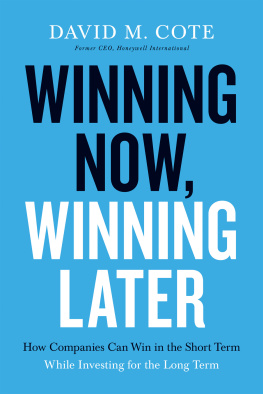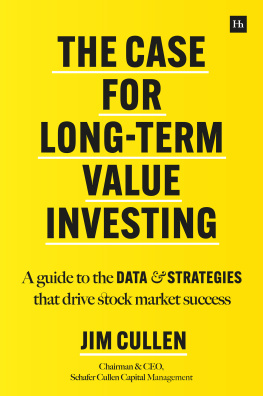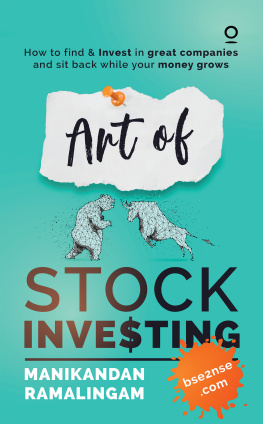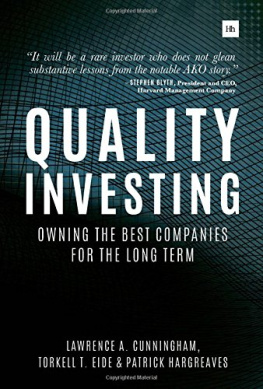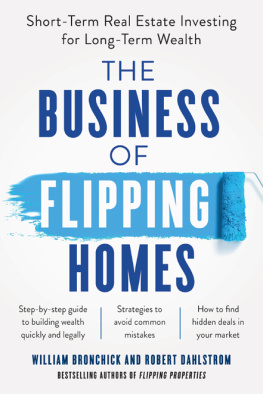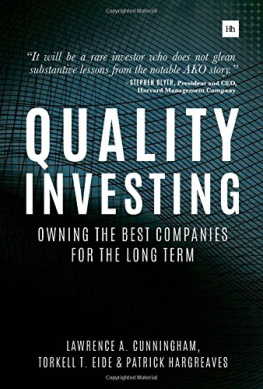David M. Cote - Winning Now, Winning Later: How Companies Can Succeed in the Short Term While Investing for the Long Term
Here you can read online David M. Cote - Winning Now, Winning Later: How Companies Can Succeed in the Short Term While Investing for the Long Term full text of the book (entire story) in english for free. Download pdf and epub, get meaning, cover and reviews about this ebook. year: 2020, publisher: Harpercollins Leadership, genre: Business. Description of the work, (preface) as well as reviews are available. Best literature library LitArk.com created for fans of good reading and offers a wide selection of genres:
Romance novel
Science fiction
Adventure
Detective
Science
History
Home and family
Prose
Art
Politics
Computer
Non-fiction
Religion
Business
Children
Humor
Choose a favorite category and find really read worthwhile books. Enjoy immersion in the world of imagination, feel the emotions of the characters or learn something new for yourself, make an fascinating discovery.
- Book:Winning Now, Winning Later: How Companies Can Succeed in the Short Term While Investing for the Long Term
- Author:
- Publisher:Harpercollins Leadership
- Genre:
- Year:2020
- Rating:3 / 5
- Favourites:Add to favourites
- Your mark:
- 60
- 1
- 2
- 3
- 4
- 5
Winning Now, Winning Later: How Companies Can Succeed in the Short Term While Investing for the Long Term: summary, description and annotation
We offer to read an annotation, description, summary or preface (depends on what the author of the book "Winning Now, Winning Later: How Companies Can Succeed in the Short Term While Investing for the Long Term" wrote himself). If you haven't found the necessary information about the book — write in the comments, we will try to find it.
David M. Cote: author's other books
Who wrote Winning Now, Winning Later: How Companies Can Succeed in the Short Term While Investing for the Long Term? Find out the surname, the name of the author of the book and a list of all author's works by series.
Winning Now, Winning Later: How Companies Can Succeed in the Short Term While Investing for the Long Term — read online for free the complete book (whole text) full work
Below is the text of the book, divided by pages. System saving the place of the last page read, allows you to conveniently read the book "Winning Now, Winning Later: How Companies Can Succeed in the Short Term While Investing for the Long Term" online for free, without having to search again every time where you left off. Put a bookmark, and you can go to the page where you finished reading at any time.
Font size:
Interval:
Bookmark:
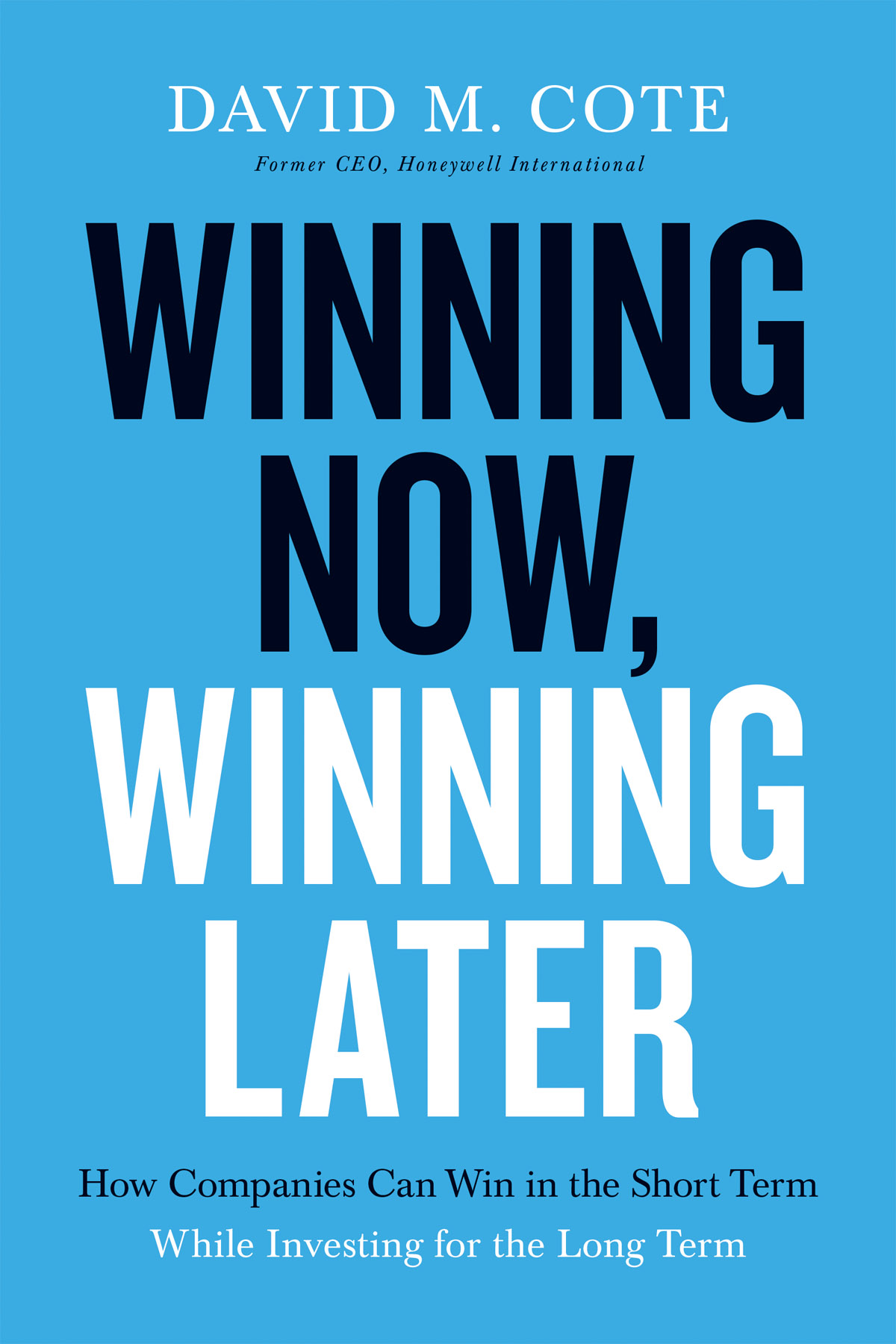
2020 by David M. Cote
All rights reserved. No portion of this book may be reproduced, stored in a retrieval system, or transmitted in any form or by any meanselectronic, mechanical, photocopy, recording, scanning, or otherexcept for brief quotations in critical reviews or articles, without the prior written permission of the publisher.
Published by HarperCollins Leadership, an imprint of HarperCollins Focus LLC.
Any internet addresses, phone numbers, or company or product information printed in this book are offered as a resource and are not intended in any way to be or to imply an endorsement by HarperCollins Leadership, nor does HarperCollins Leadership vouch for the existence, content, or services of these sites, phone numbers, companies, or products beyond the life of this book.
ISBN 978-1-5995-1022-4 (eBook)
ISBN 978-1-5995-1021-7 (HC)
Epub Edition April 2020 9781599510224
Library of Congress Control Number: 2020935961
Printed in the United States of America
20 21 22 23 24 LSC 10 9 8 7 6 5 4 3 2 1
Information about External Hyperlinks in this ebook
Please note that the endnotes in this ebook may contain hyperlinks to external websites as part of bibliographic citations. These hyperlinks have not been activated by the publisher, who cannot verify the accuracy of these links beyond the date of publication
To my big, raucous family with a variety of strong personalities, starting with my Momma (86 and going strong) and my Dad (deceased long ago). To my two sons, Ryan and John; their wives, Heather and Kristel; and eight grandkids Hannah Banana, Xavier X Man, Samantha, Matthew, Robert Skeeter, Adeline Addie-Lion, Jacob, and Kaia Kaia-Gatorwho make generation continuance so much fun. To my son, Ryan, in particular, for so scaring me with his pending birth that it provided the kick in the ass I needed to start a career. To my loving and wonderful wife, Maureen, who encouraged me for years to write a book and knows how to do everything. Thats not a joke.
Contents
I f you run a team or an organization of any size, you face a seemingly intractable dilemma each day: Should you focus on making the numbers, often at the expense of the companys future health, or should you prioritize longer-term strategies, your quarterly or annual performance be damned?
Most corporate managers and executives choose the first option, running businesses quarter-to-quarter to the detriment of long-term performance. Leaders might value broader objectives like sustainability, competitiveness, and growth, and wax eloquent about their commitment to these long-term goals, but when called upon to allocate scarce resources, they focus on the current years plan and do what it takes to meet their numbers. In their view, they have no choice: their job depends on pleasing bosses and shareholders today, not tomorrow.
The notion that there is no way to pursue long- and short-term goals at the same time, and therefore leaders have no choice but to embrace short-termism, is one of the most pernicious beliefs circulating in business today. A McKinsey study found that firms that followed long-term strategies amassed $7 billion more in market capitalization between 2001 and 2014, and generated 47 percent more revenue growth and 36 percent more earnings growth, on average, than companies that took a shorter-term approach. Short-termism has become so rampant that influential leaders are speaking out against it, with some advocating that we relax the reporting requirements on public firms so that leaders dont feel such intense and constant pressure to make their numbers.
We cant regulate our way to long-termismthe problem is too complex and deeply entrenched. Instead, we need a comprehensive mind-set shift on the part of leaders and managers at every level. Somehow, weve convinced ourselves that we can only invest in the future if we let short-term performance tank. But thats not true. Strong short- and long-term performance only seem mutually exclusive. As a leader, you can and must pursue both at the same time. Unless you do, you and your team or organization will never reach your full potential.
MY BATTLE WITH SHORT-TERMISM
Early in my career, when I worked in various finance and general management positions at General Electric, my colleagues and I were hell-bent on hitting our numbers in the current quarter and year. Wed think about next year, but only when we had to. This obsessive focus on today at the expense of tomorrow didnt make a lot of sense to me. Our business would perform well for most of a given year, and wed hire a thousand people to help us grow. Then in October and November, wed create our plans for the coming year, only to realize wed never make our numbers unless we laid off a thousand people. So wed do that, disrupting our business and the lives of all those people. Why, I wondered, hadnt we thought ahead and only hired, say, two hundred people instead of a thousand? And yet, like most leaders, we didnt think we had a choice. We were working hard and doing the best we could, and we didnt see another way.
My opportunity to change as a leader began in February 2002, when I became CEO of the industrial conglomerate Honeywell, a $22 billion company with interests in aerospace, control systems, automotive, and chemicals. The company was underperforming, having struggled in recent years thanks to a botched merger with AlliedSignal in 1999, a couple of CEO transitions, and failed attempts to sell the company to United Technologies Corporation and then to General Electric. But from what recruiters, executives, and others had told me, and from what I could tell based on my own analysis, the company had some good businesses that had simply been poorly managed. Once someone stepped in, stabilized the organization, and focused on the future, Honeywells performance would bounce right back.
During my first months on the job, as I began to probe into the company and its operations, I discovered the company didnt have good fundamentalsit was all a faade. Honeywell was a train wreck and on the verge of failure. We had billions in unresolved environmental and asbestos liabilities, a woefully underfunded pension, an entrenched make the quarter mind-set, an organization beset by cultural warfare, depleted leadership ranks, no process initiatives in place to make us more efficient, no globalization initiatives to help us grow in the rest of the world, significant underinvestment in new products and services, and the list went on and on.
But it got worse. Strangely, the board and the outgoing CEO refused me any access to our financials until July 2002, when I became chairman. When I did gain access, I was hit almost immediately with a bombshell: our finance team informed me that wed have to significantly reduce our earnings commitment for the year. We wound up lowering our second-half earnings projections twice by a cumulative 26 percent within a period of weeks, infuriating analysts and investors who already lacked confidence in me. Investors knew I hadnt been a finalist in the competition to succeed Jack Welch as CEO at GE, and I hadnt been the first choice to run Honeywell. By reducing our earnings estimates so early in my tenure, and by having to do so not once but twice, I reinforced the investor communitys worst fears that I was a lightweight and didnt have it in me to run a big company like Honeywell.
Meanwhile, my own worst fears about Honeywell materialized as I probed why we had missed our numbers. It turned out that our accounting was unhealthy at best. No, we werent doing anything illegaleverything fell within the parameters of permitted accounting practicesbut the entire organization was gaming the system to try to make their numbers each quarter (during the previous decade, for every dollar in earnings, we only generated sixty-nine cents in cash, a fact that reflected aggressive bookkeeping). As a result, our leaders lacked a clear and honest picture of their businesses. Accounting is your primary information system for making decisions, so if that information is bad, your decisions will be bad too. Our leaders were going through the motions, only pretending to run their businesses strategically or even competently. It was all a big messshort-termism run horribly amuck.
Font size:
Interval:
Bookmark:
Similar books «Winning Now, Winning Later: How Companies Can Succeed in the Short Term While Investing for the Long Term»
Look at similar books to Winning Now, Winning Later: How Companies Can Succeed in the Short Term While Investing for the Long Term. We have selected literature similar in name and meaning in the hope of providing readers with more options to find new, interesting, not yet read works.
Discussion, reviews of the book Winning Now, Winning Later: How Companies Can Succeed in the Short Term While Investing for the Long Term and just readers' own opinions. Leave your comments, write what you think about the work, its meaning or the main characters. Specify what exactly you liked and what you didn't like, and why you think so.

